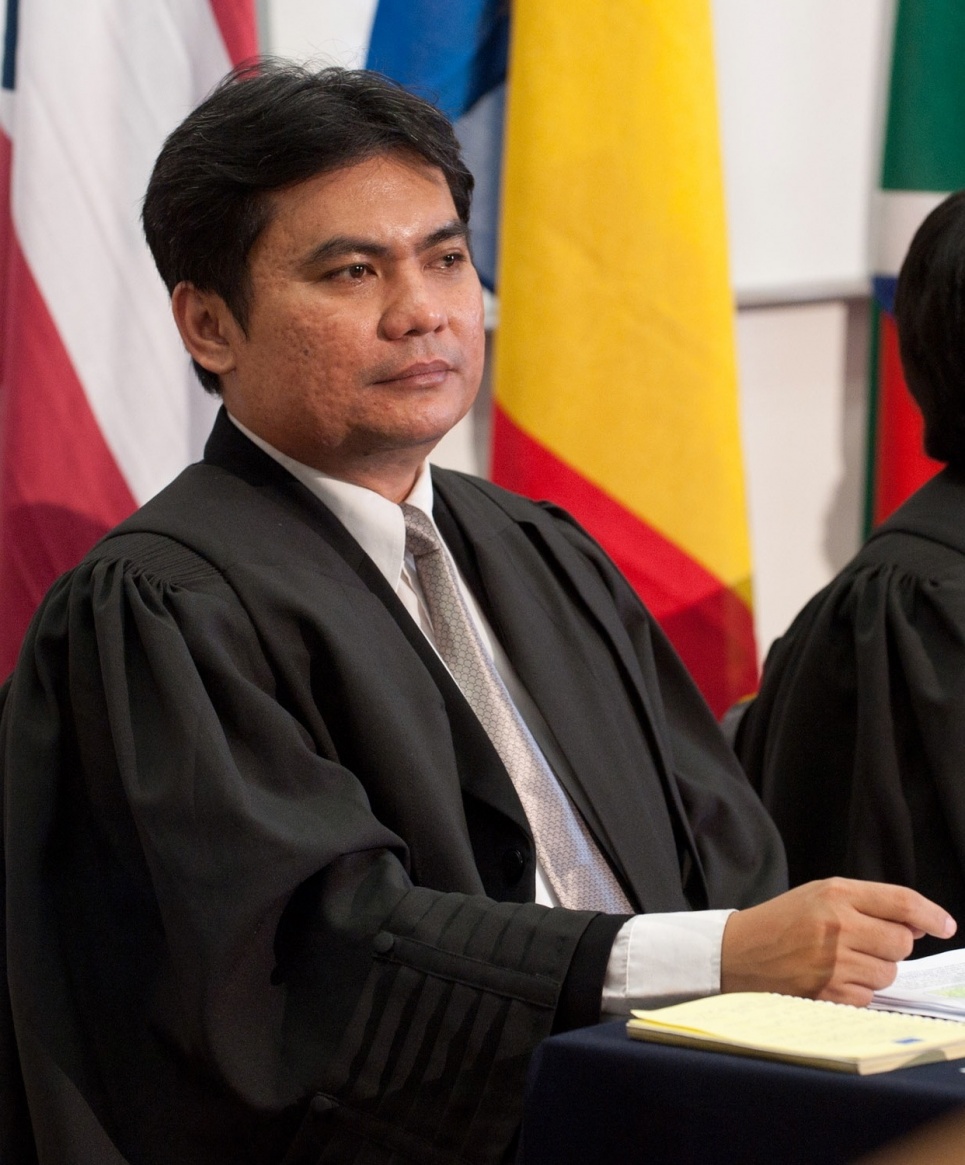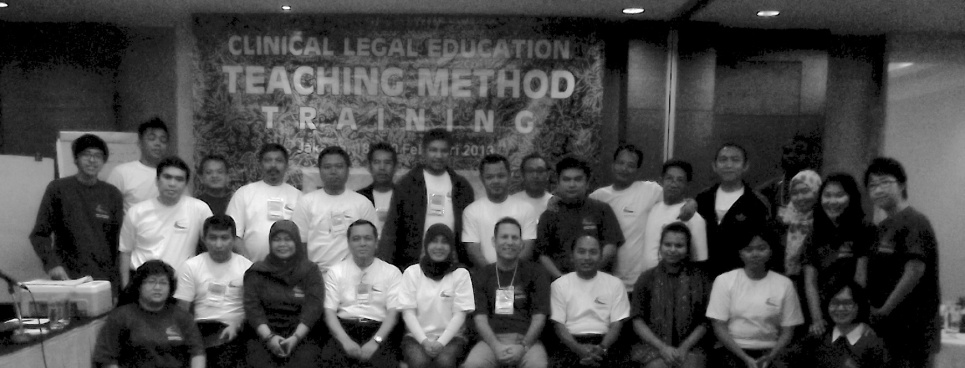Post
Legal empowerment through Clinical Legal Education in Indonesia
by Uli Parulian Sihombing
Indonesian institutions of higher learning generally recognize a set of three core principles known as ‘Tri Dharma’: education, research, and community service. According to Tri Dharma, a university must go beyond the traditional mandates of research and education to include community service in its vision and mission and emphasize practical applications in academic activities.
In Beyond Rule of Law Orthodoxy (2003), Stephen Golub writes that legal services and related development activities must take legal empowerment approaches into account in order to genuinely strengthen the ability of disadvantaged groups to control their own lives. In this context, institutions of higher legal education can also play a key role – by engaging in Clinical Legal Education, or CLE.
According to Tri Dharma, a university must go beyond the traditional mandates of research and education to include community service in its vision and mission, and emphasize practical applications in academic activities.
Clinical Legal Education is a legal empowerment approach with three primary objectives: 1) to increase access to justice for underrepresented groups; 2) to develop a legal education system focused on essential skills, knowledge, and values for up-and-coming lawyers; and 3) to support high standards of quality in the legal profession[1].
When universities host campus-based legal aid offices, clinical programs, and courses that emphasize social justice values, they contribute to the Tri Dharma principle of community service by advancing real-life applications of legal empowerment.
Professor Mochtar Kusumaatmadja, of the Law School University of Pajajaran, first introduced Clinical Legal Education to Indonesia in 1970[2]. Under the CLE model, law students were encouraged to undertake a legal clinic practicum as an alternative to the traditional thesis requirement for degree completion. In early stages, the model proved difficult to implement, as law schools were unable to provide clinical courses, nor access to law clinics for their students.
But from 2007 to present, the Open Society Justice Initiative (OSJI), in cooperation with two Indonesian law schools – the Islamic University of Indonesia in Yogjarkarta and the University of Pasundan in Bandung – has established several Clinical Legal Education programs in Indonesia. As a result, law students are now increasingly able to take advantage of clinical courses as part of their law school education while continuing to develop their professional capacity and networks.
Law schools are now also involved in a range of legal empowerment activities, including street law programs – which involve law students teaching local high school students and members of rural communities about the law – and the training of law student paralegal volunteers. Communities benefit from engagement with law students, becoming aware of their rights and ways to access justice using the law.
As a result, law students take advantage of clinical courses as part of their legal education and communities become aware of their rights and ways to access justice using the law
In 2011, members of public and private law schools across the country attended a symposium at Islamic University of Indonesia Law School in Yogjakarta where they shared experiences and lessons learned from CLE implementation at their respective institutions. The symposium concluded with recommendations to: 1) create a formal CLE association in Indonesia; and 2) ensure an ongoing exchange of practical knowledge, experience and updated information about CLE amongst participants. Community representatives noted that CLE had made a substantial contribution to their awareness and understanding of the law and issues relevant to them.
Challenges moving forward
The Indonesian Legal Resource Center (ILRC) continues to work to identify challenges to CLE implementation efforts across the country. Law schools face a range of challenges from within, including lack of administrative support and adherence by educators to traditional teaching methodologies that do not allow for the establishment of university-based legal aid offices or the integration of such clinics into legal studies curricula. External challenges include lack of support from the government, especially the Ministry of National Education.
In order to tackle both internal and external challenges, law schools – and the government – must remember the principle of ‘Tri-Dharma’ – that service to community is an essential foundation for any successful institution of higher learning.
 Uli Parulian Sihombing is Executive Director of the Indonesian Legal Resource Center (ILRC), a Jakarta-based non-governmental organization that focuses on access to justice issues in Indonesia. He is also a visiting lecturer on human rights at Swiss German University in Tangerang, serves as an advisory member for the Indonesian Clinical Legal Education Association, and is a member of Namati’s Network Guidance Committee. Previously Uli worked at the Jakarta Legal Aid Institute (LBH Jakarta), as a public interest lawyer from 1998-2006, and as Director from 2003-2006. He has received several fellowships and awards, including the Open Society Justice Initiative Fellowship (2006-2008) and invitation to the US State Department’s International Leadership Visitor Program (IVLP) as an expert in Judicial Systems (2012). Uli is the author of many publications, including clinical legal education resources for practitioners.
Uli Parulian Sihombing is Executive Director of the Indonesian Legal Resource Center (ILRC), a Jakarta-based non-governmental organization that focuses on access to justice issues in Indonesia. He is also a visiting lecturer on human rights at Swiss German University in Tangerang, serves as an advisory member for the Indonesian Clinical Legal Education Association, and is a member of Namati’s Network Guidance Committee. Previously Uli worked at the Jakarta Legal Aid Institute (LBH Jakarta), as a public interest lawyer from 1998-2006, and as Director from 2003-2006. He has received several fellowships and awards, including the Open Society Justice Initiative Fellowship (2006-2008) and invitation to the US State Department’s International Leadership Visitor Program (IVLP) as an expert in Judicial Systems (2012). Uli is the author of many publications, including clinical legal education resources for practitioners.
[1] Frank S. Bloch, Global Clinical Movement and Its National and International Counterparts, 5 (2011).
[2] Siti Aminah, the Mitra Hukum Newsletter, 8 (2011).

